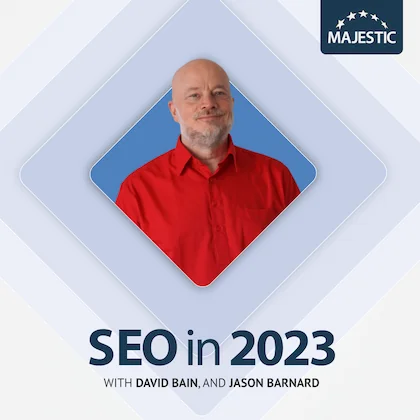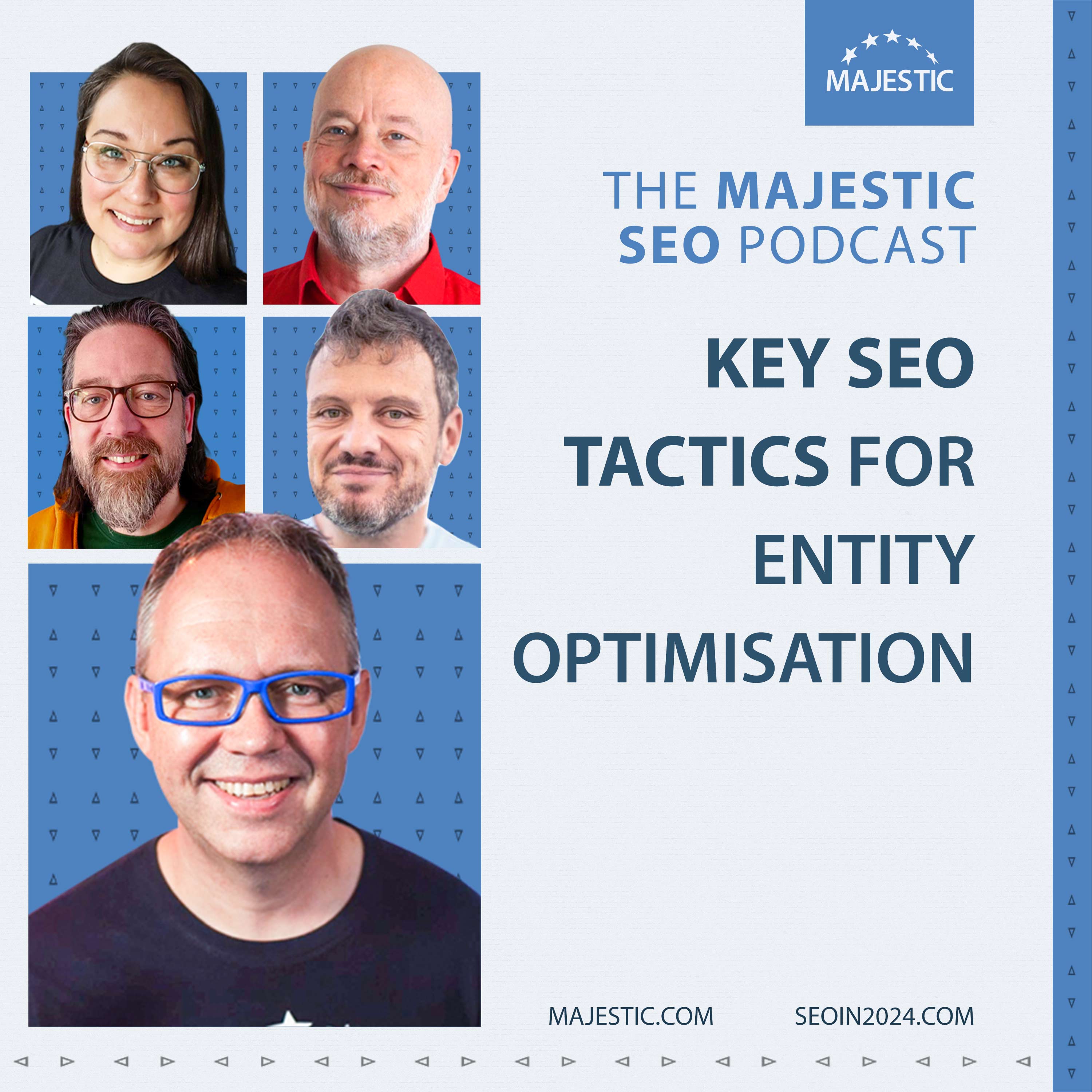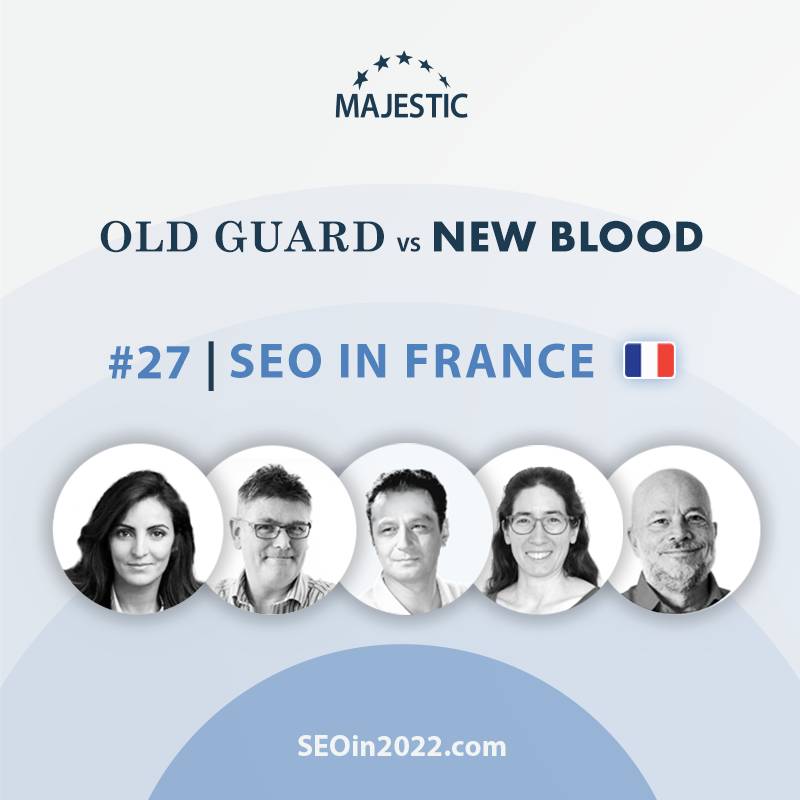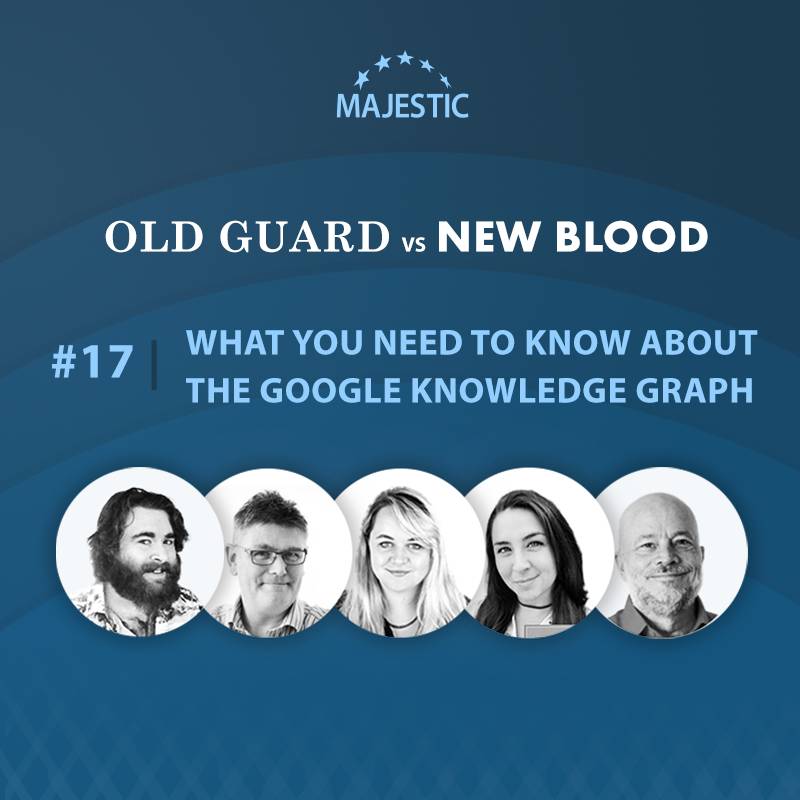-
Site Explorer
- Majestic
- Summary
- Ref Domains
- Backlinks
 New
New Lost
Lost- Context
- Anchor Text
- Pages
- Topics
- Link Graph
- Related Sites
- Advanced Tools
- Author ExplorerBeta
- Summary
- Similar Profiles
- Profile Backlinks
- Attributions
- Compare
-
Link Tools
- My Majestic
- Recent Activity
- Reports
- Campaigns
- Verified Domains
- OpenApps
- API Keys
- Keywords
- Keyword Generator
- Keyword Checker
- Search Explorer
- Link Tools
- Bulk Backlinks
- Neighbourhood Checker
- Submit URLs
- Experimental
- Index Merger
- Link Profile Fight
- Mutual Links
- Solo Links
- PDF Report
- Typo Domain
- Free SEO Tools
- Support
Treat Google Like a Child
Jason Barnard
Jason Barnard explains that to prosper with SEO in 2023, you should treat Google like a child and make sure that you are educating that child about who you are and what you do.

Treat Google Like a Child
Jason says: “We should tap into Google’s childlike desire to learn and educate it accordingly.”
What kind of child is Google?
“Google draws relevant information from a Knowledge Graph: a massive encyclopaedia of knowledge that the machine Google can use. If we perceive Google as a child, this interpretation makes sense because Google is trying to learn everything about everything in the world. As SEOs, our job is to teach this child about the small corner of the internet we’re interested in.
It is our job to teach Google who we are, what we do, and who our audience is.”
What kind of education and nourishment does Google need to effectively learn about brands?
“In terms of brands, the thing that Google needs to focus on is entity understanding and entity identity. Google’s understanding, and its confidence in that understanding, are the cornerstones of absolutely everything we do in SEO. EAT (expertise, authoritativeness, and trustworthiness) is fashionable at the moment, and there are signals for that. If Google understands who you are, that’ll send a positive signal their way. If Google has to guess who you are, then it can only apply these signals in a dampened manner.
Being in Google’s Knowledge Graph means that Google fully and explicitly understands who you are. In this case, any EAT signals you’re working on will be fully applied. Going forward, entity understanding and your entity identity will be the most important things for SEO.”
If you’re launching a new brand next week, what would be some of the initial things you would do to increase Google’s confidence and understanding of who you are as a brand/entity?
“At Kalicube we have the Kalicube Pro platform - which was built in-house. It was designed to provide a way to analyse how Google learns and where it gets its knowledge from. What we’ve learned from the platform is that Google gets its knowledge for each entity from different sources. You can’t always assume that a specific source you’re looking at is going to be a source that works. You should instead look at each entity. From this perspective, you need Google to understand who you are, what you do, and who your audience is.
The best place to start is on your website or entity home: a page on the website that represents your entity. Google refers to this as the ‘point of reconciliation’, where they need your version of the facts on a page of a site that you’re working on. Then, when Google goes around the web and discovers fragmented information about you, it can use its explanation to understand how all the information fits together.
The first thing to do is to identify the entity home, and the second thing to do is to write a clear description that Google can understand. At Kalicube, we use Google API to analyse the text and understand whether it explicitly understands the entities in your text. This can be placed on the entity home and Google will list a description of who you are, what you do, and who your audience is. It can then spread that description across the web as confirmation corroboration of the entity home using either links or schema markup.
It’s interesting to note that schema markup supports all of this. It’s a way to communicate those three things to Google in its native language. It can then fully and explicitly understand where the entity home is, who you are, what you’re doing, who your audience is, and where to find the corroboration.”
Regarding the entity home, are you talking about specific pages on your website or your domain name/site in general?
“It’s a specific page: one single page that represents the entity. Ideally, it would be an About Us page for a company but, as you would expect, Google tends to default to the home page. However, if you make an early start working on Google’s understanding of your entity, you can get it to use the About Us page as the entity. This is preferable because the homepage already plays an important role as the representation of a website or webpage. It’s also an incredibly important landing page for your audience when they visit your website.
If you can get the entity home to be an About Us page then that’s much better, but if Google has already chosen the home page you’ll have to go with Google.”
If you’ve focused on the About Us page as your entity home, does that mean there’s a chance it will be the number one result in the organic SERP as well as for your brand?
“No, they’re not linked at all in that sense. Google will always understand that the homepage is the correct one to put at the top of the SERP for a search on your brand name. However, the About Us page will appear in the rich site links just underneath. That means you won’t run into any danger of the About Us page dominating the homepage in terms of Google search results.
You will want it to dominate, however, in terms of where Google looks for information from the horse’s mouth. They’ll look at who you are, what you do, and who your audience is. Most brands tend to sit back and assume ‘Google gets it, Google understands, I’ll just leave it to Google.’ That’s a foolish assumption because, though Google understands a great deal, it will at best understand reasonably well and at worst get everything wrong.
Confidence is vastly underrated too. Google’s understanding is very important, but the confidence in that understanding is the single biggest insurance that future Google updates won’t impact you negatively.”
What sort of phraseology should you use? What’s an example of a way that many brands write that just doesn’t work well for Google?
“Brands tend to talk about where they started and this usually makes it difficult for Google. For example, stating that your company was formed in 2015. The problem is that what’s at the top of the results will be the most important information, and what you’ll want Google to start with. For example, what’s happening today, why your audience is looking for you, etc.
In terms of writing tips, semantic triples are incredibly powerful. In more simple terms, these can be viewed as ‘subject, verb, object’. By keeping those semantic triples as close as you can, Google can more easily get to grips with what you’re saying. Make sure that what you’re writing is clear because this will be a big signal for Google.
You should also name incredibly relevant related entities within your text. If you do this, you’ll be writing in a way that a machine can understand. It’s important to remember that this machine doesn’t have a sense of humour, a sense of irony, or a sense of poetry. It doesn’t have a real understanding of culture. With this being said, mission statements are typically something that most brands do that aren’t helpful to Google, or even customers for that matter.
It can be argued that being clear for Google also translates to what’s helpful for users.”
How do you measure if you’ve been successful with that, and ensure that Google understands what you do?
“There are a couple of ways of looking at this. Firstly, you can look at the brand SERP: the search engine results page for your exact brand. You will see that the better Google understands you the more that brand SERP will represent the brand message you’ve been projecting to your users.
Secondly, the Knowledge Panel that triggers when somebody searches for your brand name. This indicates that Google has not only understood who you are and what you do but that it’s incredibly confident in that information. Otherwise, it wouldn’t show the Knowledge Panel. It’s great to track both the brand SERP and the Knowledge Panel, preferably with a knowledge system to see how stable, rich, and representative they are. You can also try to measure how Google’s confidence in its understanding is progressing.
It’s exciting to be able to look at just how confident Google is - whether it’s 50% confident, 60% confident, or 70% confident. The confidence in this understanding is your insurance. It’s your safety harness for every single Google update you’ll encounter over the next few years.”
Are there many different scenarios where the Knowledge Panel wouldn’t appear?
“There are lots of different aspects to this. It’s a great question because you’ve got the ambiguity of whether it will show a Knowledge Panel or not. If your brand name is ambiguous or your personal name is ambiguous, it can become a huge problem.
Another one is geography - for example, names being spelt differently from location to location. Geo makes a massive difference, alongside Google’s confidence in its understanding. There are lots of brands and people with Knowledge Panels who don’t even realise because they’ve never seen them. However, the reason they haven’t seen them is simply that Google isn’t confident enough to show it, or it hasn’t got enough information. The Knowledge Panel in and of itself is based on Google’s understanding, its confidence in that understanding, and the probability that the entity searching for that term is looking for that specific entity.
Google is starting to push Knowledge Panels into search results that represent the topics themselves. This is very interesting from a marketing perspective.
The last point that’s worth thinking about is search history. What’s interesting about Knowledge Panels is that, if you’re in that geeky Knowledge Panel space, the search history within a session is going to have a massive effect on what you see in the Knowledge Panel. With a new session, you’re going to revert to whatever it was to start with, meaning it’s very much session-based. For example, if you close your laptop and open it the next day you’ll remain in the same search session. This principle applies to Google. When you’ve left the search result open, it’ll still be in the same session the next day.
We’re getting this incredible, personalised experience but it’s still session-based.”
What shouldn’t SEOs be doing in 2023? What’s seductive in terms of time, but ultimately counterproductive?
“Getting into the Google Knowledge Graph is advisable. You should get that understanding of who you are, what you’re doing, and who your audience is. I would avoid going the wiki route, whether that’s with Wikidata or one of the pseudo-wikis out there. Doing so will hand control of your brand message over to anonymous wiki admins. Another huge problem is that, if your article is deleted, recreating a Knowledge Panel is ten times more difficult than creating one without a wiki in the first place.
Avoid wikis as much as you possibly can, and build your Knowledge Panel through your capacity to educate the child that is Google. Keep control of your brand message.”
Jason Barnard is the founder of Kalicube, and you can find him at kalicube.com.
Also with Jason Barnard
Choose Your Own Learning Style
 Video
Video
If you like to get up-close with your favourite SEO experts, these one-to-one interviews might just be for you.
Watch all of our episodes, FREE, on our dedicated SEO in 2023 playlist.
 Podcast
Podcast
Maybe you are more of a listener than a watcher, or prefer to learn while you commute.
SEO in 2023 is available now via all the usual podcast platforms
Don't miss out
Opt-in to receive email updates.
It's the fastest way to find out more about SEO in 2025.
Could we improve this page for you? Please tell us










